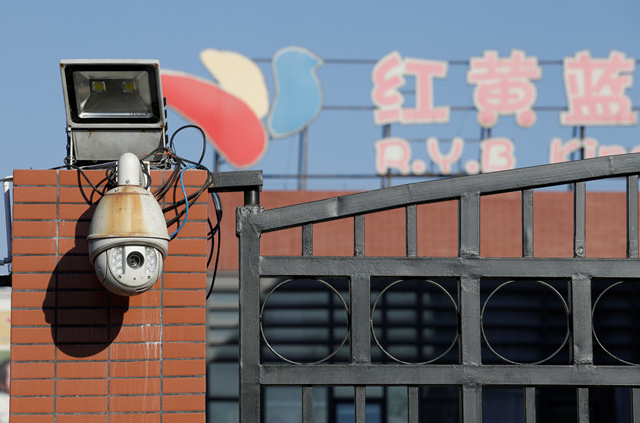
Altogether 69 kindergarten employees in China were arrested and 77 prosecuted for child abuse cases since January 2016, the Supreme People's Procuratorate (SPP) announced Thursday.
Although the number was small, these cases caused a huge social impact, Zheng Xinjian, director of juvenile prosecution under SPP, said at a press conference on Thursday, China News Service reported.
China's prosecutors always insist on zero tolerance toward child-abuse cases and exact severe punishment in criminal cases that hurt children, Zheng said.
The topic of child abuse re-entered the spotlight of Chinese society after social media exposed incidents at Beijing-based kindergarten RYB Education and Shanghai's Ctrip day care center.
After these incidents authorities all over the country began inspecting kindergartens and day care centers. Prosecutors nationwide launched lectures in 2,239 kindergartens from June 2016 to November 2017, China News Service reported.
The government should further improve regulation of kindergartens and examination of kindergarten employees' qualifications, said Shi Weizhong, deputy director of SPP juvenile prosecution.
China is in extreme need of qualified kindergarten teachers, and some kindergarten teachers are not qualified, Xiong Bingqi, deputy director of the 21st Century Education Research Institute, told the Global Times.
China had about 3.8 million kindergarten teachers in 2016.
About 22 percent have a high school degree or lower, Beijing Youth Daily reported, citing statistics from the Ministry of Education.
China still needs at least 3 million kindergarten teachers, China Youth Daily reported.
"Kindergartens and day care centers have been recognized as a lucrative industry in China, especially since the country adopted the two-child policy," Xiong said.
"However, the rising number of child abuse cases indicates the industry urgently needs regulation. There should be a clear regulation requiring them to invest most of their revenue in education itself," said Xiong.


